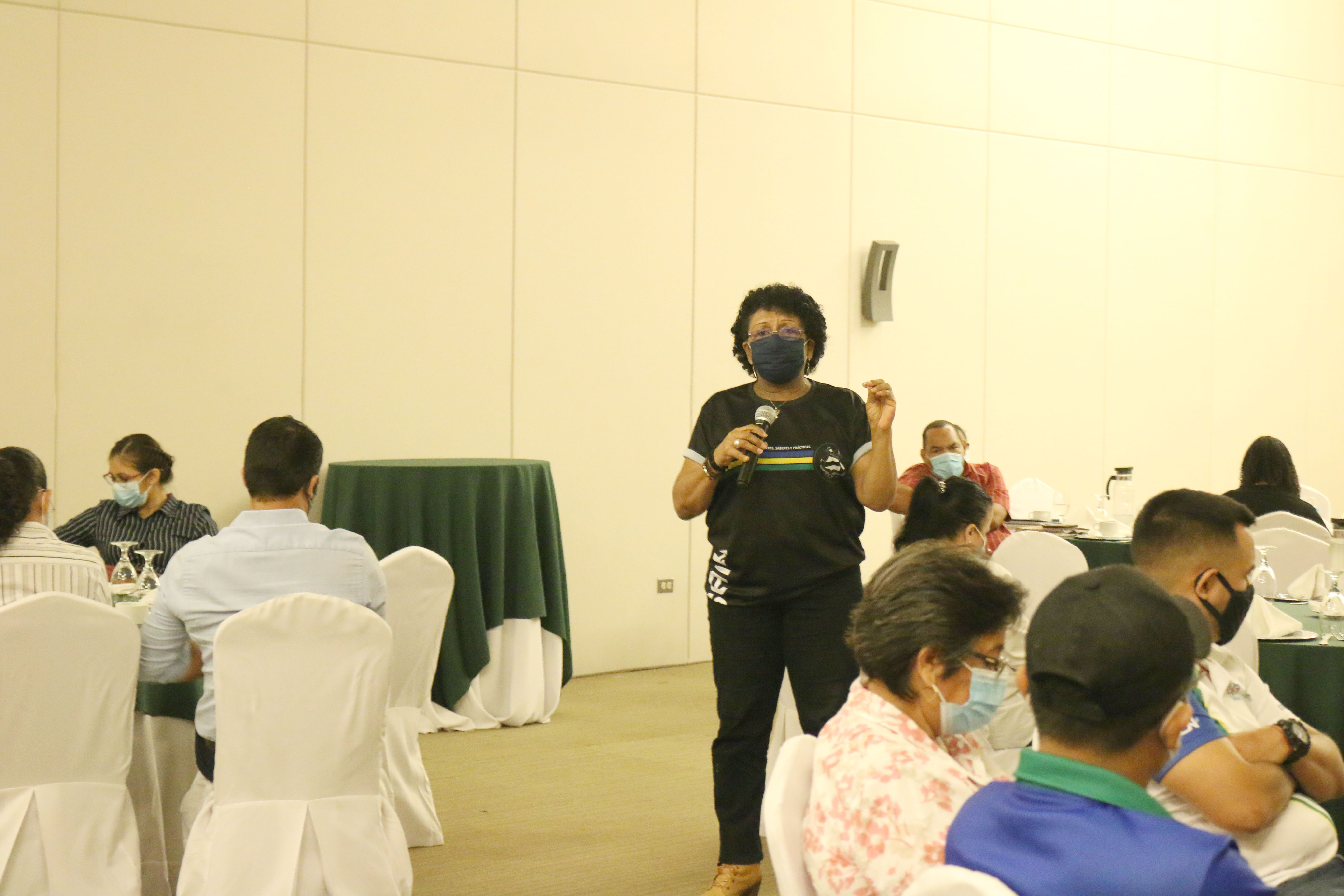
The rector of URACCAN ensured that there are commemorative activities in all venues and throughout the Caribbean Coast, for Autonomy Month.
Msc. Dixon: "The costeños and costeñas have not waited for them to give us anything. What we have is because we have fought tirelessly for it."
On the occasion of commemorating the 33 years of promulgation of the Statute of Autonomy and the 26 years of founding of URACCAN, Dr. Alta Hooker, rector of this educational institution, met with her entire team from the Liaison Office to reflect and delve into these momentous dates, as well as to make a renewing tour of the challenges, learnings, achievements and horizons lived from this study house , in their historic struggle for the rights of the peoples of the Caribbean Coast and Abya Yala.
During the activity, those present shared their experiences at URACCAN, from the day they arrived at this institution and what, over the years, has meant to them to belong to this formidable intercultural family. All of us, Dr Hooker said, "we are just as important to URACCAN; by fulfilling our work, with dedication, love and solidarity, we contribute to the strengthening of this house of study and the autonomy of our Caribbean Coast. We must be proud and proud. At 26 years old, it's amazing everything we've accomplished."
As part of this knowledge and love dialogue space, the director of the Center for Multi-Ethnic Women's Studies and Information (CEIMM), MSc. Bernardine Dixon, addressed the history of Regional Autonomy, through all its avatars, from the formation of the indigenous peoples and ethnic communities of the Caribbean Coast, its processes of colonization and impositions, its first regional organizations, to the declaration, in 1987, of the Law on Autonomy, in the light of which URACCAN, the beloved daughter who embodies all her ideals, was born , dreams and aspirations. "It is essential to know who we are and where we come from, because only then can we know for sure where we are going," the civil service would categorically affirm.
For his part, Dr. William Flores, coordinator of the UNESCO Chair of URACCAN and officer of External Cooperation, promoted a dynamic dialogue on the history of this university and the guiding concepts by which he has positioned himself academically, communally and interculturally, conquering the heart of the Caribbean Coast and the indigenous peoples of Latin America, being today an undisputed international reference.
Dr. Flores emphasized the vital meaning of URACCAN for autonomy, underpinning his ideas in Article 8 of Law 128, which establishes education as the basis for the development of the peoples of the Caribbean Coast, without undermining their ethnic identity and promoting their culture, languages, historical heritage and their own and relevant educational programmes , rescuing their worldviews and ancestral knowledge.
In this regard, Dr. Hooker emphasized that "if the content of the Autonomy Act is carefully reviewed, and URACCAN's Mission and Vision, it is clear that URACCAN is part of the recognition and exercise of the human and collective rights of indigenous, Afro-descendant and mixed-race peoples of the Caribbean Coast," taking into account their needs , worldviews and sacred links with Mother Earth.
In addition, Dr. José Luis Saballos, general secretary of URACCAN, assured that this university aspires to quality, but to a quality understood as a total concept, of intercultural community linkage, with mystique (love something, believe it, make it possible) and commitment for the common good. It is the "unity in diversity", concluded the professor.
- Log in to post comments
- 143 views
